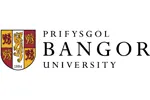We're moving! This site will be relocating to goingto.university in 2026. Please update your bookmarks to the new address.


the United Kingdom
Bangor University| The award | How you will study | Study duration | Course start | Domestic course fees | International course fees |
|---|---|---|---|---|---|
| MSc, PG Cert, PG Dip | Full-time | 1 year | September, January | GBP 9000 per year | GBP 14500 per year |
Have you ever wondered why you can remember an advert from your childhood but haven’t a clue what adverts you saw yesterday? Or maybe you’ve been in a supermarket and wondered why all of the cartoon characters on cereal boxes are looking down. If so you’re probably interested in consumer psychology. Consumer psychology is a specialty area of psychology that studies how feelings, beliefs, and perceptions influence the way consumers buy and relate to goods and services.
This exciting new discipline uses psychological insight and research and applies it to the problems facing markeeters, helping them make better decisions. For example, if a brand is developing a new advertisement, it is essential that it grabs consumers’ attention. Not only should it grab attention, but marketeers will want to ensure that consumers learn the targeted message - and psychologists can help achieve this. For over a hundred years psychologists have studied concepts including: attention, perception, decision-making learning and motivation to name a few. While these have traditionally been studied in a laboratory based system, the relevance to marketing is obvious. By applying principles generated from learning psychology and our knowledge of how the visual system works, psychologists are able to develop advertisements that are more effective at capturing attention and more likely to be remembered.
Today consumer psychologists are working for some of the largest companies tackling questions ranging from the relatively simple (for example which product packaging grabs the most attention) to the hugely complex (how should the National Health Service use behaviour-changing interventions to reduce waiting times?). In order to help answer these questions techniques used range from traditional focus groups, questionnaires, and crowd-sourced data to the more specialised psychological based approaches including: laboratory experiments, brain imaging and eye tracking.
This exciting new course will focus on the latest theoretical developments and explain how science is influencing: advertising, branding, consumer decision-making, merchandising, packaging store design and more. This course is perfect for any graduate wishing to start, or further develop a career in Consumer Psychology and Business and is delivered by schools that enjoy an international reputation in their respective fields.
For information and further detailed guidance on entry requirements for EU and International Students, including the minimum English Language entry requirement, please visit the Entry Requirements by Country pages. International applicants can also visit the International Education Centre section of our website for further details.
Below are some suggested courses at other providers that you may also be interested in:
Una Europa Joint BA in European Studies (BAES) Bachelor Degree
Institute of European Studies, Jagiellonian University
Find out moreFashion Buying Certificate of Attendance
IIFM | Italian Institute of Fashion Management
Find out moreProfessional Certificate of Competency in Gas Turbine Engineering Professional Certificate
Engineering Institute of Technology
Find out moreComputing and Information Technologies - Top Up BSc (Hons), University Advanced Diploma
University of Derby Online Learning
Find out morePsychology Bachelor of International Liberal Arts
International College of Liberal Arts (iCLA) at Yamanashi Gakuin University
Find out moreIf you do not meet the entry requirements for this course then consider one of these postgraduate preparation courses from another institution:
Graduate Diploma of Technology (Software Engineering) (FedUniv at IIBIT)
International Institute of Business & Information Technology (IIBIT)
Find out moreThere are 617 other courses listed from Bangor University. A selection of these are displayed below:
Join the StudyLink email list and never miss a chance to turn your study abroad dreams into reality!
